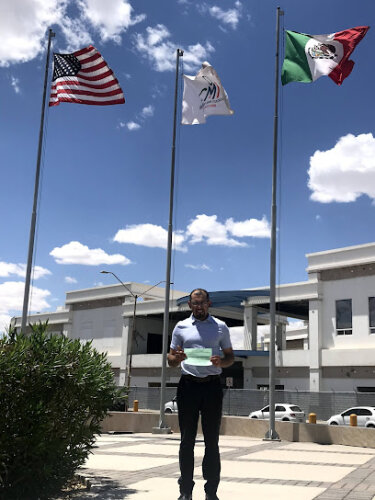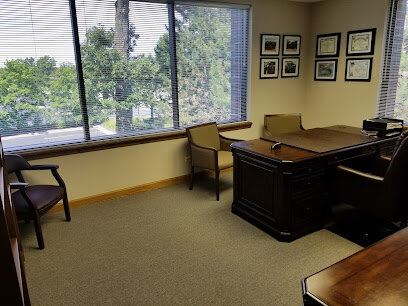Best White Collar Crime Lawyers in Wheaton
Share your needs with us, get contacted by law firms.
Free. Takes 2 min.
List of the best lawyers in Wheaton, United States
About White Collar Crime Law in Wheaton, United States
White collar crime refers to non-violent offenses that are typically committed for financial gain or to obtain a business advantage. Common examples include fraud, embezzlement, identity theft, bribery, tax crimes, money laundering, securities violations, and various types of regulatory and corporate misconduct. In Wheaton, as in other U.S. cities, white collar matters can be investigated and prosecuted at the municipal, county, state, or federal level depending on the facts of the case. Because many alleged white collar offenses involve interstate transactions, banks, federal benefits, or securities, federal agencies often become involved even when the initial trigger occurs locally.
Why You May Need a Lawyer
White collar allegations raise complex legal and factual issues that often require immediate, strategic action. You may need a lawyer if you are under investigation, have been interviewed by law enforcement or a regulatory agency, received a subpoena or search warrant, been arrested, been indicted, or are the target of a civil claim tied to alleged financial wrongdoing. Businesses may need counsel if employees are investigated, if regulatory compliance questions arise, or if the entity faces business interruption or licensing risk. An experienced lawyer can protect your rights early, preserve evidence, advise on whether to cooperate or negotiate, negotiate with prosecutors or regulators, handle civil exposure, and, if necessary, provide a defense at trial.
Local Laws Overview
Local law enforcement often plays a first-response role for allegations occurring inside Wheaton, but white collar cases commonly involve multiple jurisdictions. Key local-law aspects to be aware of include the following - jurisdiction and prosecutorial authority, the distinction between state-level and federal statutes, and relevant criminal statutes for theft, fraud, identity theft, and property-related offenses. County or state prosecutors bring charges under state criminal codes when the conduct is local in nature and does not implicate federal statutes. Federal prosecutors become involved where the conduct crosses state lines, involves financial institutions, tax violations, wire or mail fraud, or securities laws. Regulatory agencies and professional licensing boards at the state level can impose administrative sanctions in parallel to criminal prosecutions. Local courts set procedures for arraignment, pretrial motions, bail, discovery, and plea negotiations, while federal courts have different rules and more formal discovery. Asset forfeiture rules, restitution obligations, sentencing ranges, and statute of limitations vary by statute and jurisdiction, so local counsel should be consulted for precise legal deadlines and potential remedies.
Frequently Asked Questions
What counts as white collar crime?
White collar crime generally includes non-violent offenses committed for financial or business advantage. Typical examples are fraud, embezzlement, tax evasion, identity theft, bribery, securities violations, money laundering, and cyber-enabled theft. The specific statutory elements differ by offense and jurisdiction.
Who can investigate or prosecute a white collar case in Wheaton?
Investigators may include the local police department, county detectives, state investigative units, and federal agencies such as the FBI, IRS Criminal Investigation, or the Department of Justice. Prosecutors can be the county or state prosecutor for state crimes, or U.S. Attorneys for federal crimes. Regulatory agencies and state attorney general offices may also bring enforcement actions.
Should I speak with law enforcement or a regulatory investigator without a lawyer?
No. It is generally unwise to speak with law enforcement or agency investigators before consulting a lawyer. Anything you say can be used as evidence. A lawyer can advise whether to cooperate, negotiate the terms of an interview, or request formal legal protections.
What should I do if agents serve a subpoena or search warrant?
If you receive a subpoena, preserve all requested documents and contact a lawyer promptly to challenge improper requests or to negotiate scope and timing. If agents execute a search warrant, remain calm, ask to see the warrant, and do not obstruct law enforcement. Note your rights, do not volunteer information, and contact counsel immediately.
Can white collar charges be resolved without a trial?
Yes. Many white collar matters are resolved through pretrial motions, plea agreements, deferred prosecution agreements, non-prosecution agreements, or administrative settlements. The appropriate path depends on the strength of the evidence, the defendant's goals, potential penalties, and the availability of mitigating factors such as cooperation or restitution.
What penalties could I face if convicted?
Penalties vary widely by offense and jurisdiction and can include imprisonment, fines, restitution to victims, probation, forfeiture of assets, and professional licensing consequences. Federal penalties may be more severe for large-scale or interstate schemes. Local counsel can estimate likely exposure based on the charges.
How long do I have to bring a case - what about the statute of limitations?
Statutes of limitations differ by offense and jurisdiction. For many state crimes, limitations range from a few years to longer periods for more serious fraud. Federal fraud and related crimes also have specific limitation periods, sometimes extended for certain types of offenses or concealed conduct. Determining the applicable limitation period requires review of the statutes and facts, so consult a lawyer promptly.
Can my business be sued or penalized for an employee's misconduct?
Yes. Businesses can face criminal liability, civil suits, fines, debarment from government contracts, and regulatory sanctions if employees commit crimes in the scope of employment or if the company failed to maintain adequate compliance programs. Companies should engage counsel to evaluate internal exposure, preserve documents, and determine whether self-reporting or remediation is advisable.
Will my criminal case affect professional licenses or employment?
Potentially. Many professional licensing boards consider criminal convictions or serious allegations when deciding discipline, suspension, or revocation of licenses. Employers may also take administrative action including termination. Addressing criminal exposure and parallel administrative processes simultaneously is important.
How do I choose the right lawyer for a white collar matter?
Look for lawyers with specific experience defending white collar matters, including federal and state trials, investigations, and negotiations with prosecutors and regulators. Ask about relevant case experience, trial record, experience with similar agencies, fee structure, and whether the lawyer or firm will handle both criminal and civil issues. Confidential initial consultations can help you compare candidates.
Additional Resources
Federal agencies that commonly investigate financial crimes - Federal Bureau of Investigation, Internal Revenue Service Criminal Investigation, Department of Justice, and Securities and Exchange Commission. State-level resources include the State Attorney General office, state criminal investigative units, and professional licensing boards. Local resources include the county or district attorney office, the local police department, and the county court clerk for filings and procedures. National and professional organizations that offer guidance or referrals include the National Association of Criminal Defense Lawyers and the American Bar Association. For low-cost or pro bono help, contact local legal aid organizations, bar association lawyer referral services, and the public defender office if you qualify. Offices of Inspector General and consumer protection agencies may be relevant for complaints or parallel administrative matters. For business compliance guidance, consider state commerce or regulatory agencies and industry-specific trade associations.
Next Steps
If you think you are involved in a white collar investigation or face related allegations, act promptly and thoughtfully. First, stop communicating about the matter with potential witnesses, and preserve documents and electronic records - do not delete emails or files. Second, contact an experienced white collar defense lawyer for a confidential consultation. Bring a concise timeline of events and any relevant documents to the initial meeting. Third, follow counsel's instructions about interactions with law enforcement, regulatory agencies, and employers. Fourth, consider forensic reviews of electronic devices and document retention policies if business exposure exists. Fifth, evaluate options - including negotiation, cooperation, mitigation through restitution, or fighting charges in court - with your lawyer. Finally, keep clear records of all communications and retain legal representation that understands both the legal and practical implications of white collar allegations. Prompt, well-informed action gives you the best chance to protect your rights, reputation, and financial interests.
Lawzana helps you find the best lawyers and law firms in Wheaton through a curated and pre-screened list of qualified legal professionals. Our platform offers rankings and detailed profiles of attorneys and law firms, allowing you to compare based on practice areas, including White Collar Crime, experience, and client feedback.
Each profile includes a description of the firm's areas of practice, client reviews, team members and partners, year of establishment, spoken languages, office locations, contact information, social media presence, and any published articles or resources. Most firms on our platform speak English and are experienced in both local and international legal matters.
Get a quote from top-rated law firms in Wheaton, United States — quickly, securely, and without unnecessary hassle.
Disclaimer:
The information provided on this page is for general informational purposes only and does not constitute legal advice. While we strive to ensure the accuracy and relevance of the content, legal information may change over time, and interpretations of the law can vary. You should always consult with a qualified legal professional for advice specific to your situation.
We disclaim all liability for actions taken or not taken based on the content of this page. If you believe any information is incorrect or outdated, please contact us, and we will review and update it where appropriate.









